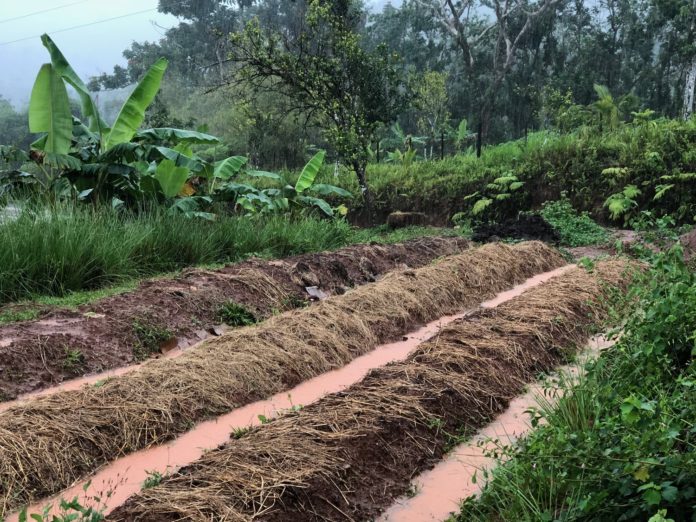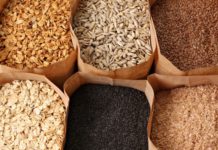Africa, along with the rest of the world, is facing a food crisis. Food shortages, caused by supply chain disruptions emanating from various events across the world, such as the COVID-19 pandemic and Ukraine-Russia conflict, have amplified long-term challenges to the sustainability of global food production, including: population growth, climate change, and increased reliance on resource-intensive farming.
Over time, facts and figures have increasingly highlighted this crisis, which calls for an urgent change in global food production and distribution. PwC’s Megatrends research underscores the long-term impact of climate change and demographic shifts on global food security, as well as the resultant cost of living, poverty and social (in)stability associated with it.
Andrew Dale, PwC Africa Assurance Partner, says: “Today, the world needs to treat food security and affordability as critical issues for global prosperity and wellbeing. Just as agriculture was a key building block in the post-Second World War era of reconstruction, our food economy needs to be rebuilt again – but this time, it needs to be done sustainably.”
Fortunately, positive change is happening across the food production value chain. Sustainability concerns are increasingly being understood and recognised across the continent, with food producers and their partners beginning to look at new sustainable agricultural practices. We are also seeing a shift with regulators beginning to shape new requirements, and consumers calling for change.
Our report, The sustainable food revolution: Future-proofing the world’s food supply, considers several levers that the food industry can pull to meet the expected future demand for nutrition in a sustainable way without significantly increasing food prices. These include 1) the avoidance of food losses in the supply chain, 2) cleaner/greener methods of food production, and 3) food substitutions at consumption level.
In our recently released Africa-focussed blog, we take a closer look at five points associated with the first two categories: the avoidance of food losses and greener production methods.
- Organic farming: Moving towards more diverse and less intensive forms of food production comes with profit potential. A recent academic study on the performance of 55 crops grown on five continents showed that, despite higher labour costs and lower yields, organic farming is up to 35% more profitable than conventional high-intensity farming due to the premium price organic products command.
- Agricultural Technology (AgTech) and precision agriculture: Agricultural production will increasingly be supported by technology like artificial intelligence (AI) and big data, allowing farmers a more focused and precise application of inputs such as water, light, fertiliser, pesticides and other soil treatments. These inputs increase productivity and, if used correctly, will reduce the environmental footprint. AgTech, like imagery tools and AI, also provide farm monitoring and pest management solutions, helping farmers see above their crops and below the ground where the naked eye cannot.
- Reducing food losses: While there are multiple causes of food loss in production and waste in retail and consumption, the chief causes lie within the distribution and retail process.Nqaba Ndiweni, PwC Africa Consumer Industrial Products & Services Leader, says: “To fix this, supply chains need to become more transparent as societies are increasingly demanding reliable information on where their food comes from. Consumers also want to know about the ethical and sustainable practices of food producers, which influences the trust that producers build with their consumers. Without trust, industry players may struggle to build a solid reputation in the market, along with a loyal and sustained customer base.”
- Regulatory change: Regulation and standard setting will alter the structure and cost base of food production. This is already happening: sustainability reporting cutting across the entire food supply chain is seen as increasingly important by consumers and investors; animal welfare standards will become a more significant driver of consumer choices; and the use of water and fertilisers will also become a more important metric of corporate sustainability performance.
- Environmental, social and governance (ESG) requirements: The intensification of environmental regulation will impact food companies directly in at least two ways:
- Mandated reporting on ESG performance will become an increasingly important factor in investor allocations, lowering the cost of capital for ESG-compliant businesses.
- The emergence of hard targets for greenhouse gas (GHG) emission reductions by 2050 (or earlier) will increase the cost of carbon intensive agriculture.
The current crisis is so profound that change is inevitable. This leaves food industry stakeholders with a choice to make: change now on their own initiative, or simply wait until they have to react to external pressures.
Lullu Krugel, PwC Africa Sustainability Leader, says: “The food industry needs to optimise across a complex landscape covering procurement, production, storage, transportation, and consumption, as well as shifting expectations on environmental and social justice. Now is a crucial time for every stakeholder to think about their role in this cycle of change, and how they can maximise on the impact of these changes on their business and wider societies.”







